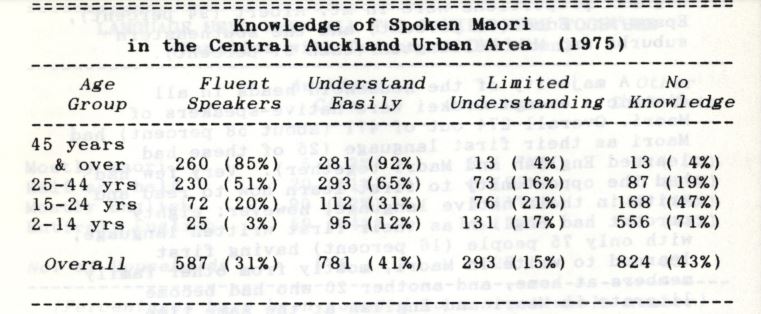-
Ngā Karere me Ngā Rauemi
News and Resources
Ngā Karere me Ngā Rauemi
News and Resources
-
Te Rangaihi Reo Māori
The Movement
Te Rangaihi Reo Māori
The Movement
-
Te Pae Kōrero
Our Community
Te Pae Kōrero
Our Community
-
Huihuinga
Events
Huihuinga
Events
-
Ngā Ara Ako
Learning Pathways
Ngā Ara Ako
Learning Pathways
-
SearchSearch
Search
Search

Younger parents in various suburbs told us that they felt "inadequate", "shy" or "ashamed" (using these English words to express the Māori concept whakama) that they could not speak Maori well. Others were sorry that they had "passed up" opportunities to learn Maori in their youth. Few had expected that the pace of change would be so rapid that such opportunities would have almost disapppeared by the time they had children of their own. Although they did not say so directly, those who felt whakama or regretful seemed to be affirming the importance of the Maori language in their Māori identity; without it, they felt incomplete. The matron of a hostel in the central city area summed this up when she told us that hardly any of the boys spoke Maori fluently, and she believed that many of them did not know who they were because of the loss of the language.
Tāmaki Makaurau | Auckland | Auckland | 1970-79 | 5% of Māori children can speak te reo. (1970-75) | Story is by tangata whenua
















Comments